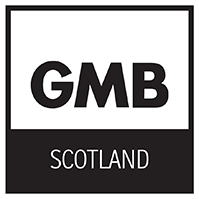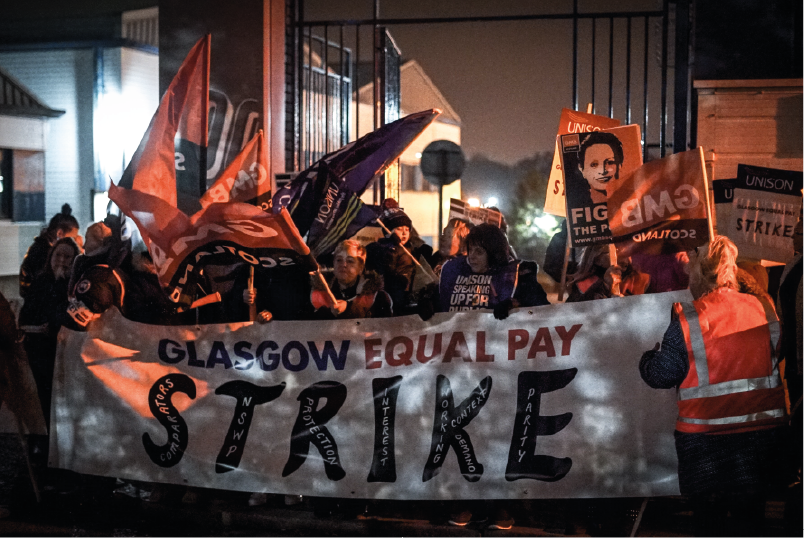Two years ago today, thousands of GMB and Unison members took to the streets to fight for equal pay. They shut down every school and public building in Glasgow and many stood in solidarity with them.
The politicians will try their hardest to rewrite history (‘we were going to pay anyway!’) but the reality was that negotiations were halted and Council Officers were being allowed to stand in the way of progress. Without strike action, there is just no way that a deal would have been struck, so soon after, for over half a billion pounds.
Two years on we are still deep in the fight for equal pay. In order to end pay discrimination once and for all, Glasgow City Council need to fully implement a non-discriminatory Job Evaluation Scheme. Of course, the progress has been unavoidably stalled by COVID-19, but before the pandemic hit, things were not going well.
Glasgow Officials were once again more interested in looking good than doing good, and progress was slow and shallow. There is an opportunity now for a full reset and we watch to see if the Council will set a more realistic deadline for implementation and FINALLY produce a work plan...
However, things are not the same as they were 6 months ago. A key part of the Scottish Joint Council scheme is the assumption that the work people are doing is, fundamentally, safe and that health and safety measures are being followed. But that is no longer a fair or reasonable assumption.
Workers across the board go to work every day and by doing so, they now put themselves at risk. They risk their own lives and the lives of their families. Guidance for workers has been patchy at best throughout this crisis; PPE guidance has been shambolic and it has taken until nearly the end of October for home care workers to finally get access to weekly testing.
Almost all of us have been impacted by COVID-19; we have lost people and we have seen our colleagues get sick. It has been a dark time and it is still a very scary time to be on the front line. But GMB members continue to report for work to provide essential services because 2 years ago, we saw what happens when essential workers remove their labour: everything stops.
So our structures that existed beforehand- job evaluations, pay and grading policies- need to be reviewed in light of COVID. Work is not safe and people are not being protected by shoddy and ever changing government guidelines.
There is no ‘business as usual’ and what has been clear from the battles fought by GMB members throughout this pandemic, is that GMB Scotland women have not forgotten how to fight. The lessons learned through the Glasgow Women’s Strike- whether you were there or watched from afar- gave care and school workers the confidence and skills to fight back during this pandemic and will stand us in good stead in the fights to come.
Rhea Wolfson - Organiser - GMB Scotland's Women's Campaign Unit

